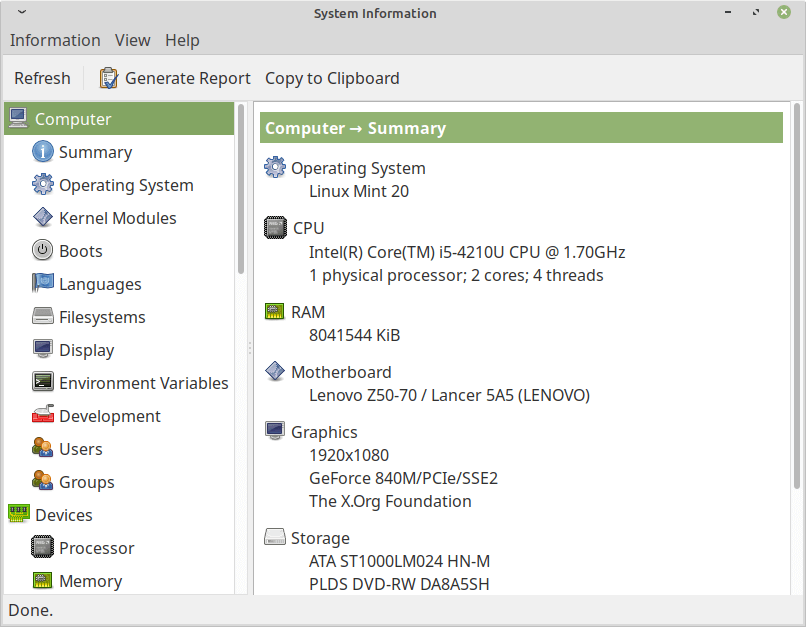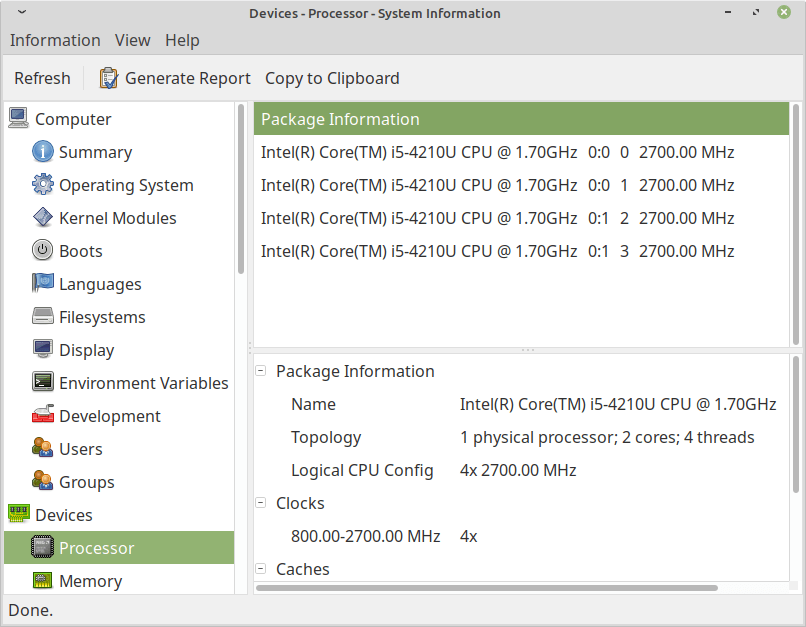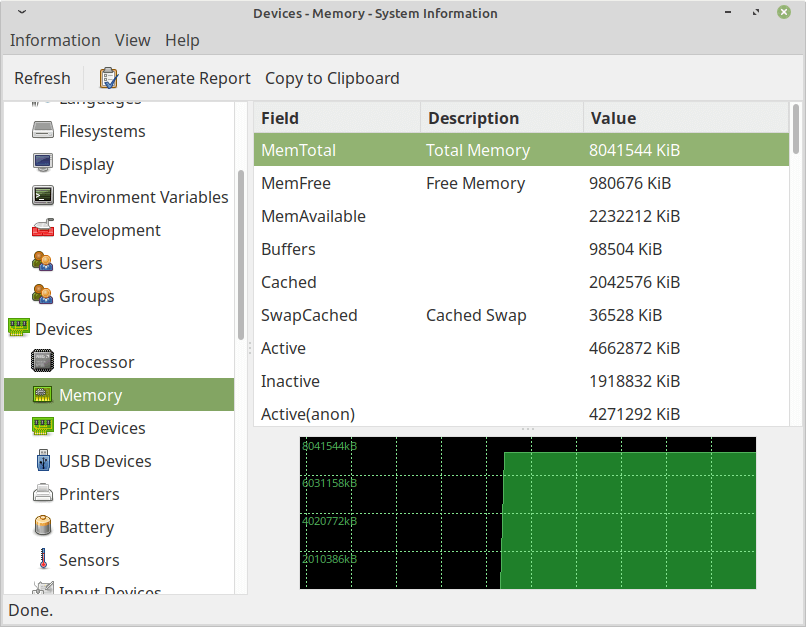HardInfo (in short for “hardware information“) is a system profiler and benchmark graphical tool for Linux systems, that is able to gather information from both hardware and some software and organize it in an easy to use GUI tool.
HardInfo can show information about these components: CPU, GPU, Motherboard, RAM, Storage, Hard Disk, Printers, Benchmarks, Sound, Network, and USB as well as some system information like the distribution name, version, and Linux Kernel info.
Besides being able to print hardware information, HardInfo can also create an advanced report from the command-line or by clicking the “Generate Report” button in the GUI and saved in either HTML or plain text formats.
The difference between HardInfo and the other Linux hardware information tools is that the information is well arranged and easier to understand than other such tools.
Installing HardInfo – System Information Tool in Linux
HardInfo is a most popular graphical application and it is tested on Ubuntu/Mint, Debian, OpenSUSE, Fedora/CentOS/RHEL, Arch Linux, and Manjaro Linux.
HardInfo is available to install in all major Linux distributions from the default repository.
Install HardInfo on Debian, Ubuntu, and Mint
$ sudo apt install hardinfo
Install HardInfo on Fedora/CentOS Linux
For some reason, the Fedora team decided to stop packaging Hardinfo in the repositories, so you’ll need to build it from sources as shown..
# dnf install glib-devel gtk+-devel zlib-devel libsoup-devel $ cd Downloads $ git clone https://github.com/lpereira/hardinfo.git $ cd hardinfo $ mkdir build $ cd build $ cmake .. $ make # make install
Install HardInfo on Arch and Manjaro Linux
$ sudo pacman -S hardinfo
Install HardInfo on OpenSUSE
$ sudo zypper in hardinfo
How to Use HardInfo in Linux
Once installed, open up Hardinfo on your computer. It’s a graphical application, and it should be categorized under System by name System Profiler and Benchmark in your distribution’s launcher.

Once it’s open, you will see various tabs in the left sidebar organized by category and the information contained in those tabs listed on the right side.
For example, you can view information about your system processor.

You may also check the memory utilization of your system.

All this information can be viewed in the command-line, especially from the /proc directory.
In Linux, there are other tools for getting system hardware information, but in this article, we have talked about the ‘hardinfo‘ tool. If you know any other similar tools, please share them in the comments.
